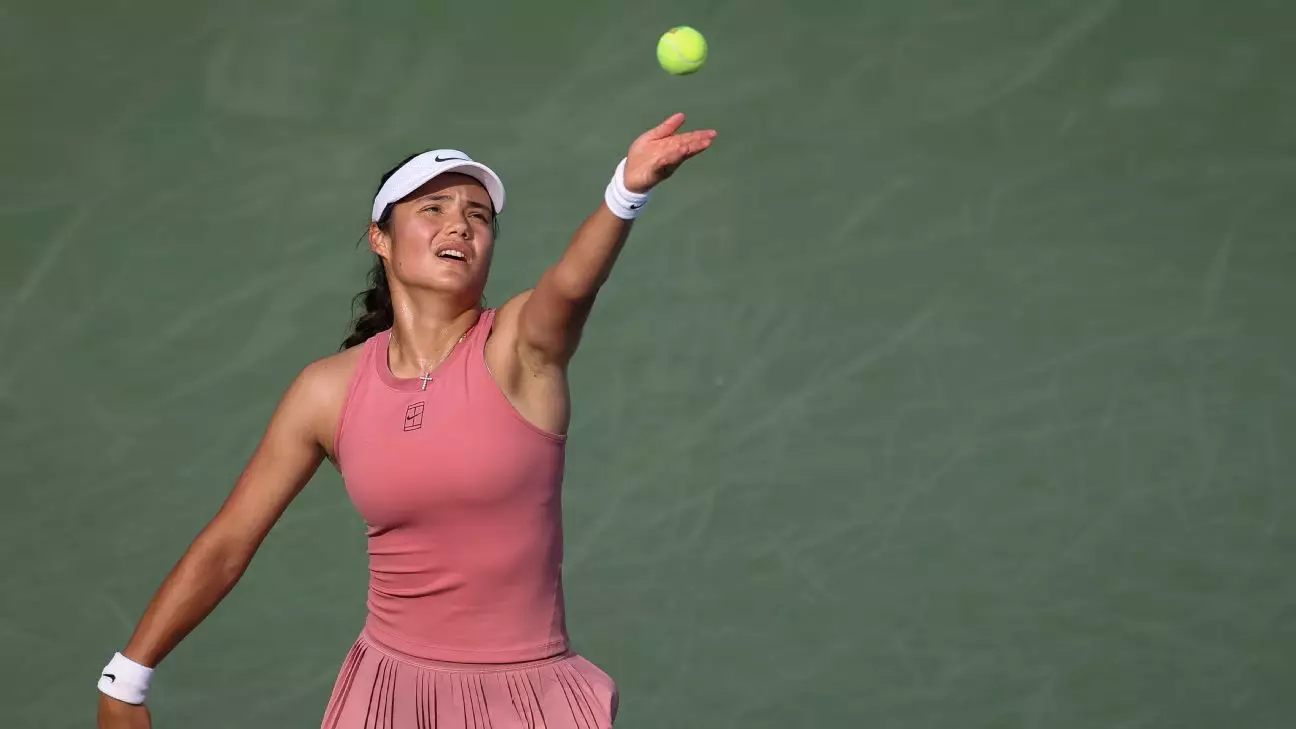In an era where mental toughness often influences match outcomes more than physical prowess, Emma Raducanu’s recent win at the DC Open exemplifies resilience prevailing over adversity. Her victory over Marta Kostyuk, a player on her own streak of misfortune, not only marks a significant personal achievement but also signals a shift in her career momentum. Raducanu, whose triumph at the 2021 US Open remains a highlight, demonstrated that through persistence and focus, players can break patterns of defeat. This win isn’t just about making headlines; it’s about Raducanu establishing herself anew as a formidable competitor despite ongoing struggles. Her upcoming clash with Naomi Osaka or Yulia Putintseva will be more than a match—it’s an opportunity for her to reassert her potential on the court.
Elusive Success and the Power of Mental Fortitude
Kostyuk’s ongoing slump underscores an unfortunate truth in professional tennis: consistency is elusive, and setbacks often weigh heavily on players’ confidence. After six consecutive first-round losses, the Ukrainian player finds herself at a crossroads, highlighting how mental resilience can be just as critical as physical skill. Such runs of poor results often lead to self-doubt, but top athletes know that perseverance is essential for recovery. Kostyuk’s predicament reminds aspiring players that even those with immense talent will face periods of stagnation—what separates the greats is their ability to learn from disappointment and to come back stronger. Her recent struggles challenge the perception that talent alone guarantees success; instead, the journey depends on relentless mental fortitude.
Surprising Feats and the Spirit of Longevity
On the men’s side, Cameron Norrie’s victory over Lorenzo Musetti points to the unpredictable nature of tennis, particularly on hard courts. Musetti’s recent injury struggles highlight how physical setbacks can derail promising careers, yet Norrie’s resilience in overcoming a tough first set exemplifies the mental grit required to succeed. Meanwhile, Holger Rune’s withdrawal due to injury underscores the fragile balance between peak performance and physical health—reminding us that longevity in tennis demands not just skill but also disciplined body maintenance.
Perhaps most inspiring is Venus Williams’ historic win at age 45. Her ability to compete at such a high level, surpassing a record age for tour-level victories, defies the conventional timeline of athletic prime. Her perseverance signals that mental strength, passion, and a love for the game can sustain a player long after most competitors would have stepped away. Williams’ double victory, both in singles and doubles, exemplifies how experience and a resilient mindset can yield remarkable results against younger rivals.
The Unpredictable Voice of Tennis
What emerges from this weekend’s tournament is a broader narrative: tennis remains a sport of relentless unpredictability and inspiring stories. Each match is an opportunity for players to defy expectations, face personal demons, or celebrate long-held dreams. Raducanu’s resurgence, Williams’ historic milestone, and the unpredictability of outcomes like Norrie’s upset victory remind us that perseverance, mental toughness, and a passion for the game are the true commodities in tennis. The sport’s beauty lies in its ability to continually surprise—challenging players and spectators alike to believe in the power of resilience and hope.


Leave a Reply